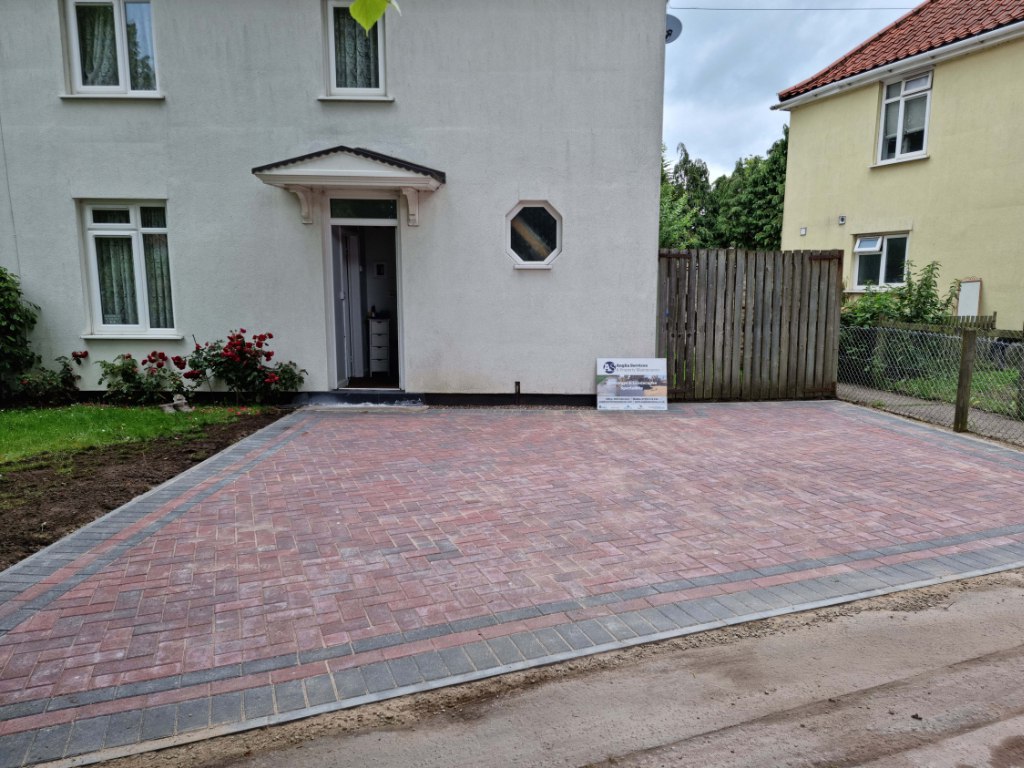What’s the Difference Between Asphalt and Tarmac?
When planning a new driveway, road, or car park, many property owners use the terms “asphalt” and “tarmac” interchangeably. While both materials are black, smooth, and durable, they are not the same — and the difference matters when it comes to performance, longevity, and suitability for certain applications. At Sevenoaks Driveways, we specialise in both tarmac and asphalt installations across Sevenoaks, Kent, and we’re often asked which option is best. Understanding how these materials differ helps homeowners and businesses make an informed choice that suits their specific needs.
Understanding the Basics
Both asphalt and tarmac are bituminous surfacing materials designed for strength, flexibility, and resilience under traffic. However, their composition and the way they are applied differ.
What Is Asphalt?
Asphalt, short for asphalt concrete, is made by mixing aggregates (such as sand, gravel, or crushed stone) with bitumen — a sticky, petroleum-based binder. The mixture is heated, laid while hot, and compacted to form a dense, smooth surface.
Key advantages of asphalt include:
- Durability: Withstands heavy use, ideal for high-traffic areas.
- Smooth finish: Offers a uniform surface that looks sleek and modern.
- Low noise: Reduces tyre noise, making it a preferred choice for roads and car parks.
- Ease of repair: Can be resurfaced efficiently when worn.
Asphalt is often used for commercial and public projects, but it’s also becoming increasingly popular for domestic driveways where a refined finish is desired.
What Is Tarmac?
Tarmac, short for tarmacadam, is one of the oldest forms of road surfacing. It was originally developed by mixing crushed stone with tar — a byproduct of coal production — and then compacting the mixture. Today, modern tarmac uses bitumen rather than tar for safety and environmental reasons.
Key benefits of tarmac include:
- Strength: Excellent load-bearing capacity for driveways and roads.
- Flexibility: Adapts well to ground movement without cracking easily.
- Fast installation: Cures quickly, allowing for rapid project completion.
- Cost-effective maintenance: Small surface repairs are straightforward.
Tarmac remains a reliable choice for residential driveways due to its long-standing reputation for resilience and ease of upkeep.
Asphalt vs Tarmac: The Key Differences
While both materials share similarities, the differences lie in their structure, application, and finish.
1. Composition
- Asphalt: Uses a refined bitumen binder with carefully graded aggregates, producing a tighter, more consistent finish.
- Tarmac: Contains coarser aggregate bound with tar or bitumen, giving it a slightly rougher texture.
2. Durability
- Asphalt: Typically more durable for heavy traffic and high-use areas such as main roads and commercial car parks.
- Tarmac: More flexible and forgiving for domestic driveways or rural lanes with lighter loads.
3. Finish
- Asphalt: Delivers a smoother, more polished appearance.
- Tarmac: Offers a slightly rougher, traditional look preferred by some homeowners.
4. Maintenance
- Asphalt: May require resealing over time to preserve its sleek finish.
- Tarmac: Can be easily patched if small cracks or wear occur.
Both materials are long-lasting when installed by professionals like Sevenoaks Driveways and maintained correctly.
Which Is Better for Driveways?
The right material depends on how the surface will be used and what appearance you want to achieve.
- For domestic driveways: Tarmac is often chosen for its adaptability, quick installation, and classic look. It handles moderate traffic and changing temperatures well — ideal for the British climate.
- For commercial or high-use areas: Asphalt may be the better choice, offering a dense, refined finish that withstands heavier loads and frequent vehicle movement.
At Sevenoaks Driveways, we provide expert advice based on your property type, usage, and preferences, ensuring your surfacing solution delivers both performance and aesthetic appeal.
The Importance of Professional Installation
Even the best materials will fail if not properly installed. Poor preparation, inadequate drainage, or incorrect compaction can lead to cracks, puddling, or premature wear.
By choosing a trusted local contractor like Sevenoaks Driveways in Sevenoaks, Kent, you can expect:
- Proper site preparation and levelling.
- Quality aggregates and bitumen mixtures.
- Professional compaction for a seamless finish.
- Long-lasting results backed by years of local experience.
A correctly laid tarmac or asphalt surface not only enhances kerb appeal but also improves drainage and functionality for years to come.
Environmental Considerations
Both materials are recyclable, making them sustainable choices for modern driveways. Recycled asphalt and tarmac can be reused in future projects, reducing waste and environmental impact. The smooth finish of asphalt can also contribute to improved water runoff, while tarmac’s permeability helps reduce pooling in certain designs.
Conclusion
While asphalt and tarmac may look similar at first glance, their differences in composition, finish, and performance make each suitable for distinct applications. Asphalt provides a sleek, durable option ideal for commercial settings, while tarmac remains a trusted, flexible choice for residential driveways.
Sevenoaks Driveways, serving Sevenoaks, Kent, specialises in both tarmac and asphalt driveway installations, offering professional advice, expert workmanship, and lasting results. Whether you’re upgrading your home’s driveway or surfacing a larger space, we ensure every project is completed to the highest standard — combining durability with visual appeal.
Call us on: 01732 442 199
Click here to find out more about Sevenoaks Driveways
Click here to complete our contact form and see how we can help with your Driveways needs.

